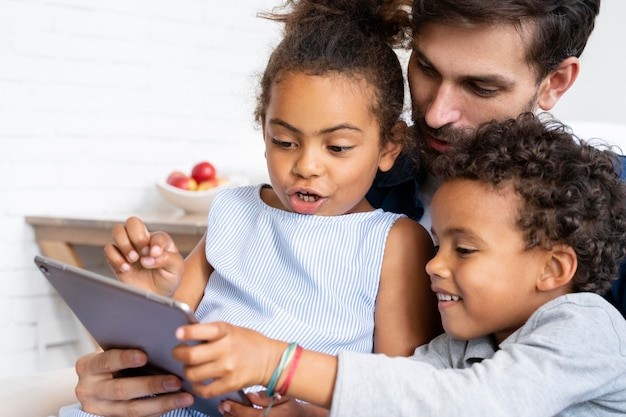In today’s interconnected world, the internet serves as a vast ocean of information and opportunities for connection. While this digital realm offers numerous benefits, it also presents challenges, especially for young minds.
As parents and guardians, it’s crucial to engage in meaningful conversations about social media usage with our children, fostering a healthy relationship with these powerful platforms.
Why discuss social media?
The universality of smartphones and internet access means that our children are often just a few taps away from various social media platforms. It’s vital to initiate discussions about online safety and responsible usage before potential issues arise.
Interestingly, a 2022 study published in the Journal of African Social Studies found that children in many communities are often early adopters of new social platforms, sometimes even before adults become aware of them. This underscores the importance of maintaining open lines of communication with our young ones about their online activities.
By starting these conversations early and making them a regular part of family discussions, we create a safe space for our children to share their digital experiences. This approach not only helps in promoting positive social media usage but also strengthens the bond between parents and children.
Effective strategies for discussing social media
Set a positive tone: Approach the topic with calm and neutrality. Avoid using accusatory language or expressing excessive worry, as this might make your child reluctant to share.
Learn from your child: Ask them about the apps they use and let them explain how these platforms work. This not only helps you understand their digital world but also makes them feel valued and heard.
Lead by example: Share your own experiences with social media, both positive and challenging. This transparency can help build trust and encourage your child to be open about their online encounters.
Stay composed: If you discover your child has engaged in inappropriate online behavior, remain calm. Gather information and express appreciation for their honesty.
Discuss digital footprints: Explain the concept of online permanence and the importance of privacy settings. Encourage them to connect only with people they know in real life.
Promote positive online behavior: Discuss the importance of kindness and respect in online interactions, just as in face-to-face encounters.
Pros and cons of social media
Social media platforms offer various advantages
Global connections: They provide opportunities for children to interact with peers from diverse backgrounds, fostering cultural understanding.
Strengthening family bonds: Distant relatives can stay connected, nurturing relationships that might otherwise be challenging to maintain.
Exploring interests: Children can find communities that share their passions, boosting confidence and well-being.
However, it’s also important to be aware of the potential risks:
Cyberbullying: Online harassment can have severe psychological impacts. A 2023 study in the African Journal of Psychology found that cyberbullying victims were 2.3 times more likely to experience depression compared to their peers.
Mental health concerns: Excessive social media use has been linked to increased anxiety and depression in young people. The constant comparison and unrealistic standards portrayed online can negatively affect self-esteem and body image.
Online predators: Children may not exercise the same caution online as they would in person, potentially exposing them to individuals with malicious intent.
As we guide our children through the digital landscape, it’s essential to remember that each child is unique, and our approach should be tailored accordingly. Regular, open conversations about social media usage, coupled with clear guidelines and mutual trust, can help our children navigate this digital world safely and positively.
By fostering a supportive environment where our children feel comfortable discussing their online experiences, we equip them with the tools to make informed decisions and develop healthy digital habits.
In doing so, we not only protect them from potential online dangers but also empower them to harness the positive aspects of social media for personal growth and meaningful connections.


